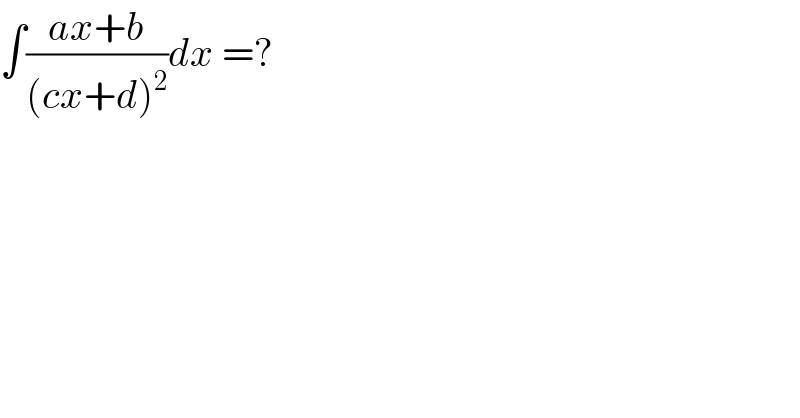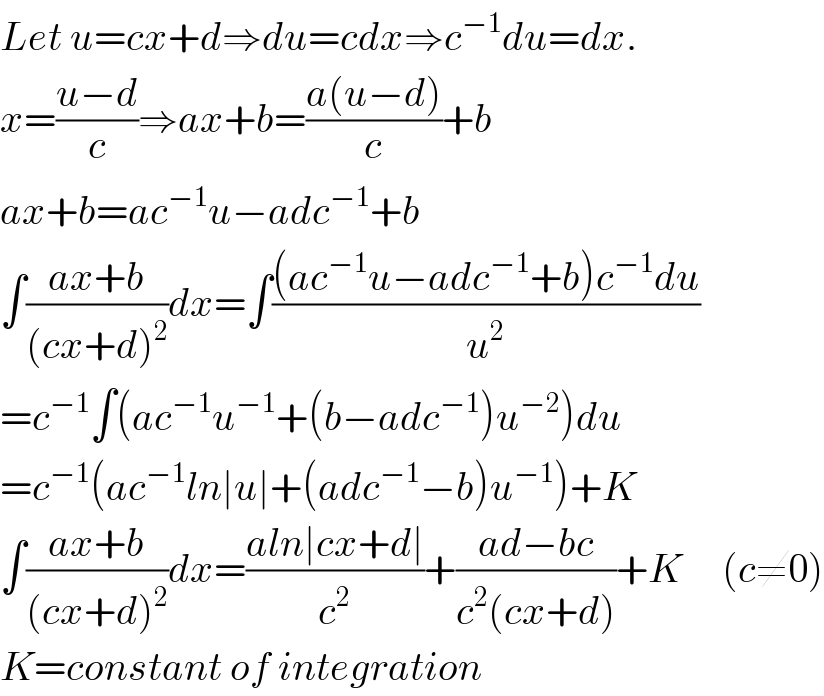Question Number 5032 by gourav~ last updated on 04/Apr/16

$$\int\frac{{ax}+{b}}{\left({cx}+{d}\right)^{\mathrm{2}} }{dx}\:=? \\ $$$$ \\ $$
Answered by Yozzii last updated on 04/Apr/16

$${Let}\:{u}={cx}+{d}\Rightarrow{du}={cdx}\Rightarrow{c}^{−\mathrm{1}} {du}={dx}. \\ $$$${x}=\frac{{u}−{d}}{{c}}\Rightarrow{ax}+{b}=\frac{{a}\left({u}−{d}\right)}{{c}}+{b} \\ $$$${ax}+{b}={ac}^{−\mathrm{1}} {u}−{adc}^{−\mathrm{1}} +{b} \\ $$$$\int\frac{{ax}+{b}}{\left({cx}+{d}\right)^{\mathrm{2}} }{dx}=\int\frac{\left({ac}^{−\mathrm{1}} {u}−{adc}^{−\mathrm{1}} +{b}\right){c}^{−\mathrm{1}} {du}}{{u}^{\mathrm{2}} } \\ $$$$={c}^{−\mathrm{1}} \int\left({ac}^{−\mathrm{1}} {u}^{−\mathrm{1}} +\left({b}−{adc}^{−\mathrm{1}} \right){u}^{−\mathrm{2}} \right){du} \\ $$$$={c}^{−\mathrm{1}} \left({ac}^{−\mathrm{1}} {ln}\mid{u}\mid+\left({adc}^{−\mathrm{1}} −{b}\right){u}^{−\mathrm{1}} \right)+{K} \\ $$$$\int\frac{{ax}+{b}}{\left({cx}+{d}\right)^{\mathrm{2}} }{dx}=\frac{{aln}\mid{cx}+{d}\mid}{{c}^{\mathrm{2}} }+\frac{{ad}−{bc}}{{c}^{\mathrm{2}} \left({cx}+{d}\right)}+{K}\:\:\:\:\:\left({c}\neq\mathrm{0}\right) \\ $$$${K}={constant}\:{of}\:{integration} \\ $$
